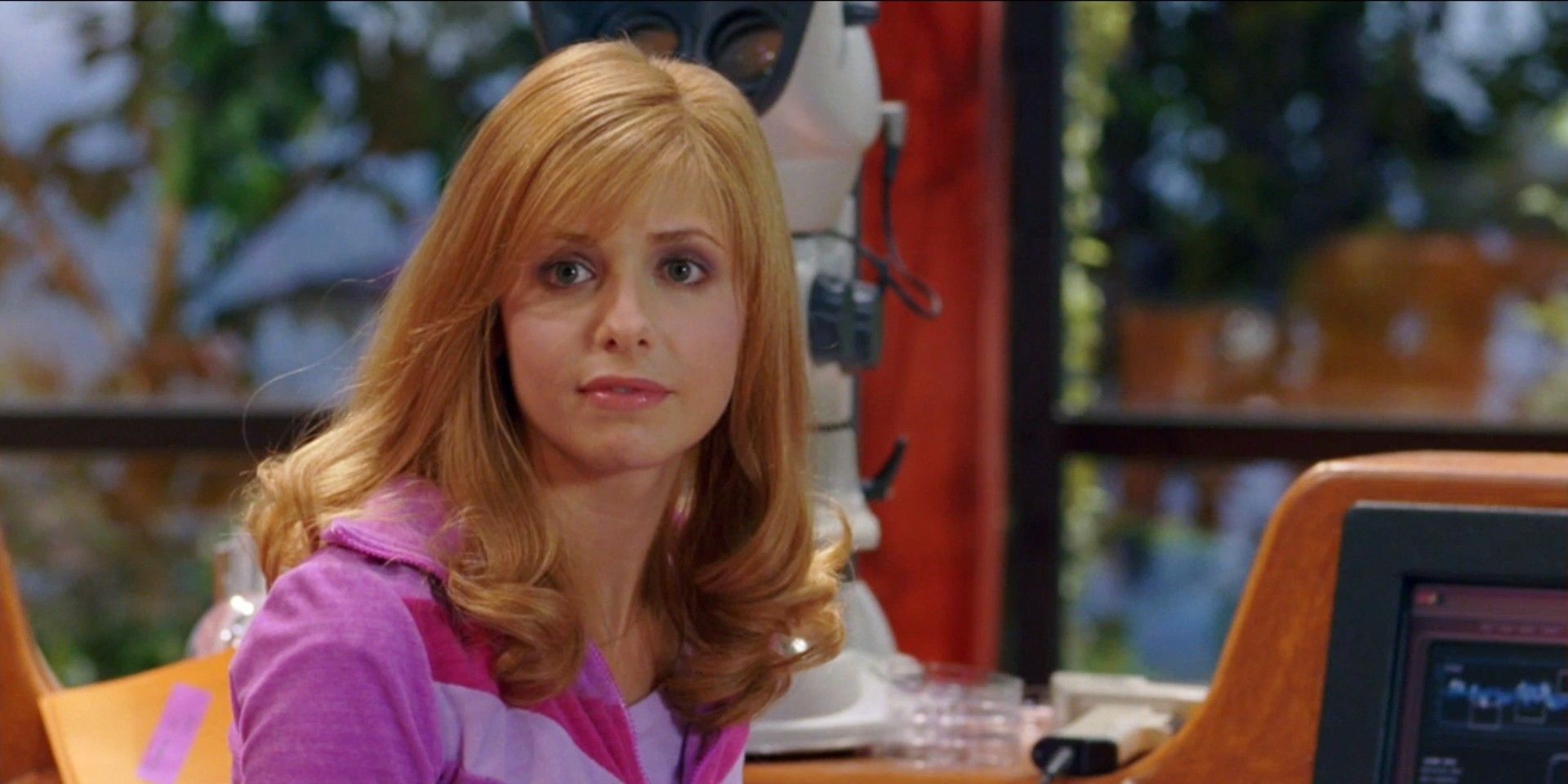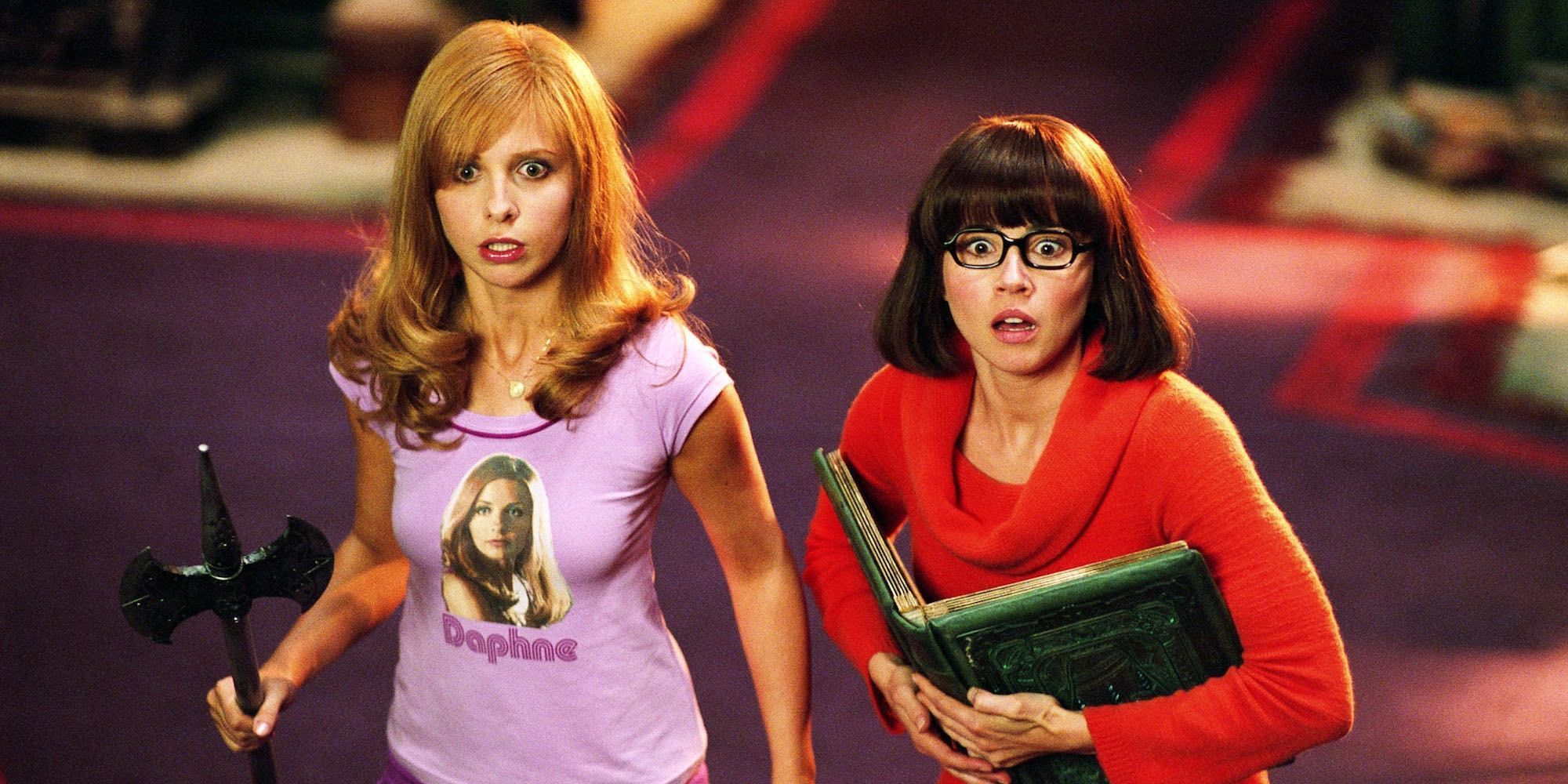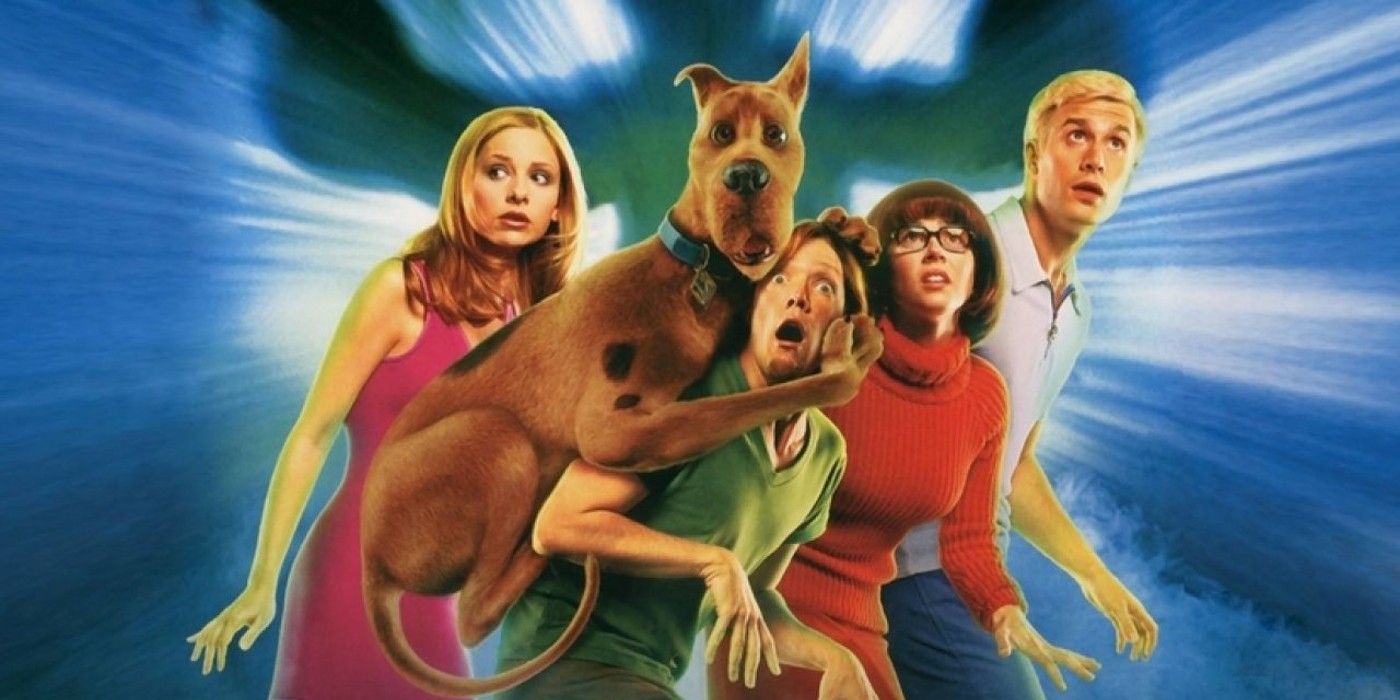This week marks 20 years since Scooby-Doo and his Mystery Incorporated gang first left the TV for their big screen, live-action debut. Though the Raja Gosnell-directed Scooby-Doo may have been met with a lukewarm critical reception upon its initial release, in the two decades since then, the film has gained a dedicated fan base. And it's no wonder why. The film is funny, full of juvenile, often crude jokes and camp humor. It is highly stylized and on the nose, not a film to be taken overly seriously, yet heartwarming and comforting nonetheless.
The film's legacy endures today via the internet, with fan accounts and edits across a variety of social media platforms. Favored among fans, as demonstrated in the many TikTok videos featuring her character, is Daphne Blake, played by iconic actor Sarah Michelle Gellar. Gellar is known for playing strong, independent women, and her portrayal of Daphne is no different. This is one of the main reasons why so many hold Daphne in high regard; she is a figure of female empowerment. In revisiting Scooby-Doo today, especially in the current social and political climate, it becomes clear that live-action Daphne Blake is somewhat of a feminist icon in the context of early 2000s cinema. Her total rejection of the sexist stereotypes placed upon her character is the key reason behind this status.
The first time audiences saw live-action Daphne Blake back in Scooby-Doo, she was being held captive by the villain The Lunar Ghost. During the film's opening chase sequence, Daphne is portrayed as the "damsel in distress," unable to help herself and relying on the others to save her. The damsel in distress trope is one of the earliest narrative devices in literature and film. It portrays women, particularly young, conventionally attractive women, as incapable and in constant need of a man to rescue them. The trope is considered sexist and highly regressive in the representation of female characters. After Shaggy and Scooby eventually come to her rescue in this scene, Daphne proclaims to be over being seen as this type of person. Highly aware of the negative perceptions and constraints this trope places upon her, Daphne undergoes a mission to change how she is perceived.
When Scooby-Doo time skips into the future, Daphne has made good on this promise to stop being the damsel in distress. She has become a black belt, fully capable of defending herself. Though the gang initially laughs at her, in disbelief that she has truly changed, she soon proves them wrong. Throughout the remainder of the film, Daphne constantly pushes back against this damsel in distress trope. Instead of being the one in need of saving, she plays the hero, often rescuing the gang from danger. It is Daphne's decision to actively and successfully subvert the sexist stereotypes placed upon her that solidifies her as a figure of female empowerment.
What's also notable about the transformation that Daphne undergoes in Scooby-Doo is that she retains her femininity and core personality. This is not always the case with female characters who are portrayed as "strong." Throughout early film and television history, women who were written to be just as capable as their male counterparts, both physically and mentally, often sacrificed some of their feminine traits in favor of more masculine ones. Feminine qualities were not seen as strong, whether it be in terms of clothing, likes and dislikes, attitude, or behavior.
Live-action Daphne further solidifies her place as a feminist icon by subverting this stereotype. Throughout Scooby-Doo, she retains her femininity to the fullest. She does not sacrifice nor show shame for her feminine qualities or having more feminine hobbies, the fact that she loves fashion, enjoys make-up, or is kind and empathetic. She shows that femininity, strength, and intelligence can all co-exist.
Of course, given that Scooby-Doo premiered over 20 years ago, there are things in the film that have not aged well. In the context of a discussion about feminism in cinema, there are several aspects of the movie that are not particularly feminist. The high level of sexualization toward the female characters, including their revealing outfits and suggestive camera shots, is quite the opposite of feminism. However, in the context of the early 2000s, with the film's comedic, unserious nature in mind, this doesn't take away too much from Daphne's actions.
While there are arguably some issues with the way Daphne and other women in Scooby-Doo are portrayed, there is no denying that the live-action Daphne Blake and her determination to break away from the damsel in distress stereotype while also demonstrating the strength and power in femininity solidify her as a figure of female empowerment.



